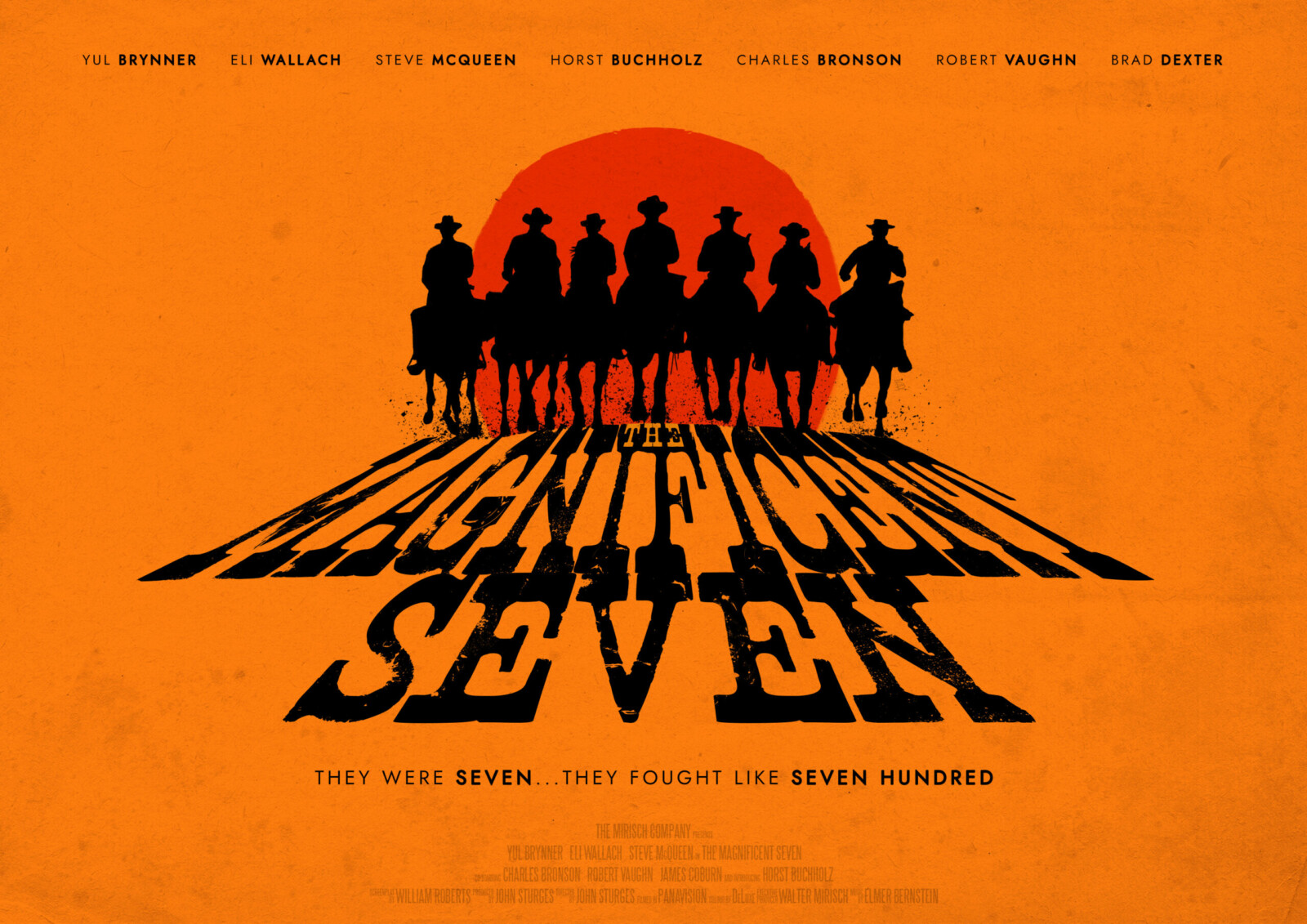
Who cares that at 60-plus, he's more than 20 years longer-in-the-tooth than Brynner was? He's still the most quietly commanding presence in movies. Good news: Denzel looks great beneath a Stetson, on top of a horse. Most damning of all, he wears the face of Peter Sarsgaard, whose soft features peg him in movie-language as a predatory creep just as surely as Washington's symmetrical mug makes him a man of virtue. In the film's prologue, he and his henchmen burst into the town parish, manhandle a child, spit tobacco on the floor, and then beat and/or shoot several unarmed civilians before setting the church on fire.

go to comic extremes to make their malefactor truly satanic: Bogue runs a mining company, first of all, dismissing claims he's polluting Rose Creek's water supply. That's not antagonistic enough an antagonist for the Age of Ultron, apparently, because Fuqua & Co. The villain Wallach played all those decades ago was a bully who stole from the poor, but he was also a man of his word who in the end was just trying to keep his starving soldiers fed.

His arranger Simon Franglen finished the film's music, with ersatz results. Sadly, he died in an airplane crash last year. The composer James Horner, who has written more sweeping, romantic adventure scores than anybody in the last 30 years, was commissioned for this movie.
#MAGNIFICENT SEVEN MOVIE#
It pains me to report that the movie lacks (until the end credits) Elmer Bernstein's heroic theme music, familiar from decades of Academy Awards telecasts. Does the suggestion that all this crisply shot, adroitly edited killing and suffering might ultimately have been pointless make the picture revisionist? A truly abysmal bit of closing narration, seemingly borne of some executive's note that someone in the movie must speak the word "magnificent" at some point, answers that question: Nope! So costly is its final battle, in lives and infrastructure, that you have to wonder whether the peace-loving homesteaders of Rose Creek circa 1879 might've fared better if they'd just taken evil mining mogul Bartholomew Bogue's lowball offer for their land and hit the road like he asked. It tips its hat to Django Unchained, but it's not a revisionist western.Īt least I think it is. (Expect an "origin story" prequel to be put in development for each of them if the movie is a hit.) And yet for all that tinkering - some profitable, some merely decorative - The Magnificent Seven '16 still feels surprisingly unreconstructed. Inevitably, it insists on developing its heroes' backstories in greater depth than its forebear. It lets a woman (Haley Bennett) fire a rifle and even speak a few substantive lines. Their new Magnificent Seven is less white than the old one, obviously. Fuqua and Washington are a good team: They haven't made a masterpiece together - the first 70 minutes or so of Training Day are great enough to make you mad when that movie doesn't go the distance - but they turn out high-grade pulp, present company included. William Roberts wrote that line, one of a handful that screenwriters Richard Wenk and Nic Pizzolatto were smart enough to retain for Denzel Washington in their fun but nonessential new version, the star's third collaboration with Training Day and The Equalizer director Antoine Fuqua. "I've been offered a lot for my work, but never everything," says Brynner. Penance, maybe.) The besieged farmers who beg for their assistance can't afford them, but will give what little they have. That's all, and that's enough.Īs in its source text - Akira Kurosawa's 1954 Seven Samurai - what motivates these soldiers of fortune remains largely opaque.

It's about a small pack of wolves, led by Yul Brynner and Steve McQueen, that decides to protect a flock of sheep from a big pack of wolves led by Eli Wallach. The Magnificent Seven wasn't one of them.Īrriving seven years after the pacifist fable Shane but two years before the myth-busting The Man Who Shot Liberty Valance, John Sturges' 1960 classic is basically a what-you-see-is-what-you get paean to brotherhood and violent sacrifice.

Metro-Goldwyn-Mayer Pictures and Columbia PicturesĮven 60 years ago, there were westerns that interrogated the genre's veneration of masculinity and might-for-right. Denzel Washington stars in The Magnificent Seven.


 0 kommentar(er)
0 kommentar(er)
